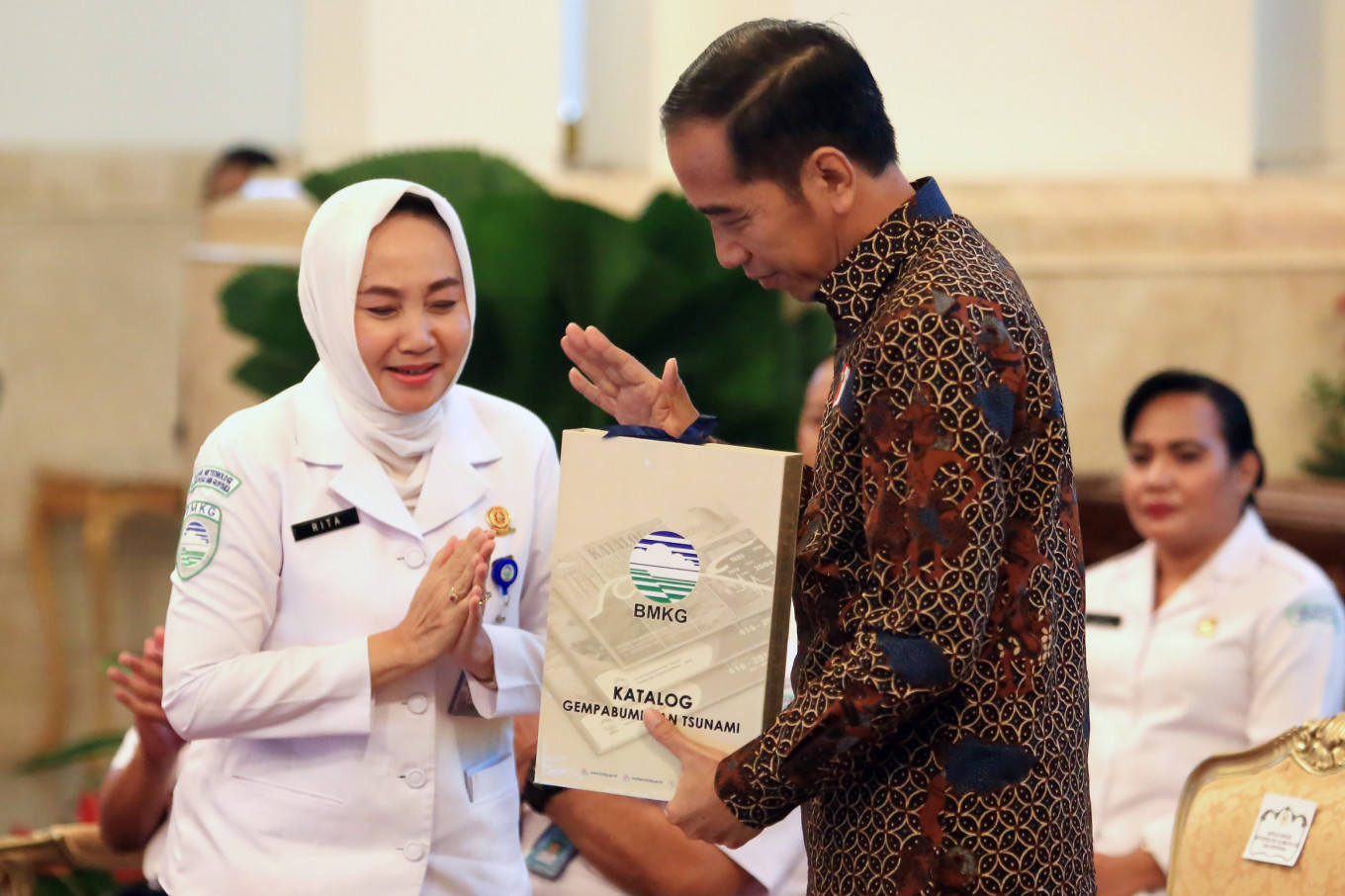Popular Reads
Top Results
Can't find what you're looking for?
View all search resultsPopular Reads
Top Results
Can't find what you're looking for?
View all search results‘Not our conclusion’: BMKG refutes suggestion hot weather kills coronavirus
BMKG head Dwikorita Karnawati said she was worried that the joint research between the agency and a team from the Gadjah Mada University (UGM) Medical School in Yogyakarta had been misunderstood.
Change text size
Gift Premium Articles
to Anyone
T
he Meteorology, Climatology and Geophysics Agency (BMKG) has played down suggestions quoting its research that Indonesia’s high temperature during the dry season as well as its humidity will curb the spread of COVID-19.
BMKG head Dwikorita Karnawati said she was worried that the joint research between the agency and a team from the Gadjah Mada University (UGM) Medical School in Yogyakarta had been misunderstood. The research was conducted to determine the impact of climate on COVID-19 transmission based on modeling, statistical analysis and literature review.
“I read that some might not have read our research completely and then concluded that the dry season would kill off the virus. That’s not our conclusion,” Dwikorita said on Tuesday evening.
"We conclude that strict physical-distancing measures, as well as a serious public health intervention, should be undertaken if the country wants to get the optimal benefit from its high temperature and humidity in lowering the risks of the COVID-19 outbreak.”
The joint study cited two studies that have yet to be peer-reviewed saying that Indonesia, with an average temperature of 27 to 30 degrees Celsius and 70 to 95 percent humidity, is apparently not an ideal place for the virus to survive.
Read also: Indonesia’s climate can limit COVID-19, but high mobility exacerbates it: BMKG
Despite the odds, the country was eventually exposed to the virus due to high mobility during the outbreak, particularly from the virus epicenter in China.
“We made the conclusion based on studies conducted between January and March. In this situation, it was impossible for us to wait for them to be peer-reviewed for another three or six months. We needed to make breakthroughs in handling the crisis, as long as we made transparent how we conducted the study,” said Dwikorita.
She went on to say that the agency had handed the study’s results to the government on March 26 to help the latter in policy making.
Coordinating Maritime Affairs and Investment Minister Luhut Pandjaitan said last week that the country would have an advantage compared with other countries as “the virus will be weaker in high-temperature locations.”
Such a suggestion had been previously debunked by the World Health Organization. The United Nations health body stated temperatures higher than 25 degrees Celsius would not halt the coronavirus spread, given that the disease had also emerged in countries with a hot climate. (kuk)










